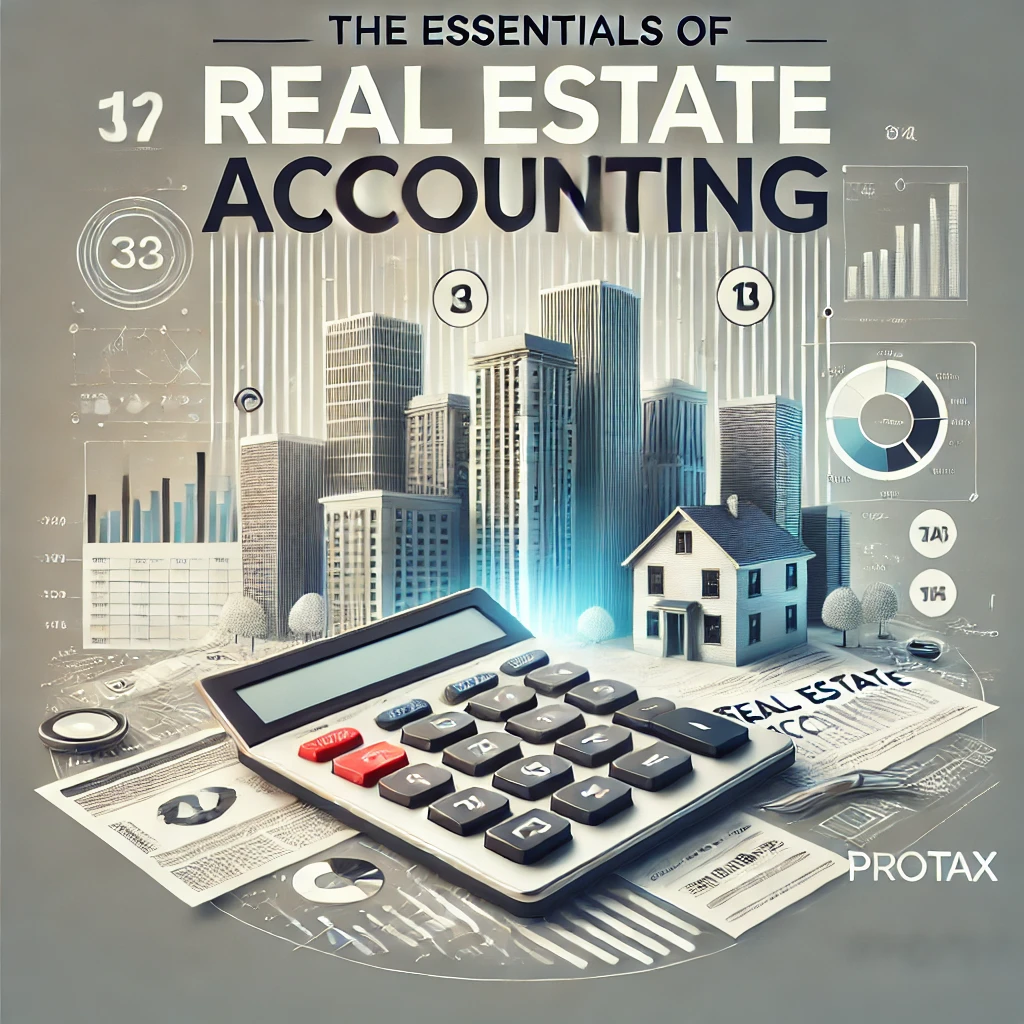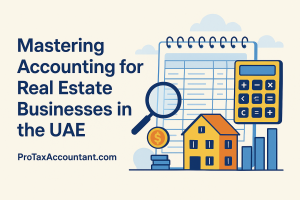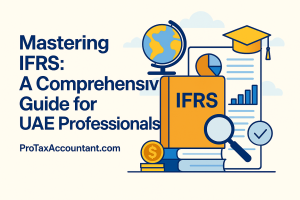Real estate accounting refers to the systematic financial management of a real estate business, including tracking income, expenses, taxes, and other crucial data.
Whether you’re an independent real estate agent or managing multiple properties, proper accounting practices are essential to ensure profitability, compliance, and growth.
In this guide, we’ll walk you through real estate accounting fundamentals, best practices, bookkeeping vs. accounting, common mistakes, and FAQs to help you streamline your financial management.
What is Real Estate Accounting?
Real estate accounting involves tracking the financial activities associated with properties. This includes monitoring cash flow, managing taxation, and keeping accurate records of income and expenses.
A robust accounting system helps real estate professionals make informed decisions, file accurate tax returns, and prepare for potential audits.
Key areas covered in real estate accounting include:
-
- Revenue generated from property sales or rentals.
-
- Tax-related activities, such as claiming deductions.
-
- Budgeting for operational expenses.
Effective real estate accounting can also leverage software solutions, which offers features such as receipt tracking, automated reconciliation, and customizable financial reports.
Sample Income Statement
ABC Real Estate Company
For the Year Ended December 31, 2024
| Category | Amount |
|---|---|
| Revenue | |
| Rental Income | 500,000 |
| Property Sales Revenue | 1,200,000 |
| Service Fees (e.g., brokerage) | 100,000 |
| Total Revenue | 1,800,000 |
| Expenses | |
| Property Maintenance | 120,000 |
| Salaries & Wages | 300,000 |
| Marketing & Advertising | 50,000 |
| Utility Costs | 20,000 |
| Depreciation | 60,000 |
| Property Taxes | 100,000 |
| Insurance | 30,000 |
| Software Subscription (e.g., accounting software) | 10,000 |
| Office Rent | 40,000 |
| Miscellaneous Expenses | 15,000 |
| Total Expenses | 745,000 |
| Net Income | 1,055,000 |
Read my blog on how to read financial statements.
Basics of Real Estate Accounting
No matter the scale of your operations, certain financial elements remain crucial.
Here’s what you should consistently track:
1. Income from Commissions
Real estate professionals earn commissions from sales and leases. Tracking this income ensures accurate reporting and better cash flow management.
2. Association Fees and Membership Dues
Agents often pay association fees or share a percentage of their commission with brokerages. These are deductible business expenses.
3. Education and Licensing Costs
Continuing education, license renewals, and certifications are essential expenses. Ensure these are included in your accounting system.
4. Office and Operational Costs
These may include:
-
- Office supplies and equipment.
-
- Rent for office spaces.
-
- Utilities and maintenance.
5. Marketing and Advertising
Promoting your services is vital for growth. Common expenses include:
-
- Website creation and hosting.
-
- Social media ads.
-
- Print materials (flyers, business cards).
6. Travel and Transportation
Real estate work often involves significant travel. Keep track of mileage, fuel, and other related costs as these may qualify for deductions.
Real Estate Accounting vs. Bookkeeping
While both are interconnected, accounting and bookkeeping serve distinct purposes:
| Bookkeeping | Accounting |
|---|---|
| Tracks daily transactions. | Analyzes financial health. |
| Maintains records of invoices and receipts. | Prepares tax documents. |
| Manages payroll (if applicable). | Generates profit/loss statements. |
Investing in time-saving bookkeeping software like Quickbooks, FreshBooks, and Zoho can simplify these processes.
| Feature | QuickBooks | FreshBooks | Zoho Books |
|---|---|---|---|
| Best for | Business growth and scalability | Solo agents and small teams | Useful integrations and flexibility |
| Pricing | Starts at $25/month | Starts at $15/month | Free plan available, paid plans start at $20/month |
| Mobile App | Yes | Yes | Yes |
| Property Management | Yes | Limited | Yes |
| Expense Tracking | Advanced | Yes, with receipt scanning | Yes, with photo imports |
| Mileage Tracking | Yes | Yes | Yes (add-on) |
| Customizable Invoicing | Yes | Yes | Yes, up to 18 templates |
| Project Management | Limited | Yes | Yes |
| Tax Preparation | Built-in | Limited | Through integrations |
| Reporting | Extensive | Basic | Customizable |
| Integrations | Numerous | Limited | 50+ apps |
| Customer Portal | Yes | Yes | Yes |
Why Real Estate Agents Need Accounting
Proper accounting isn’t just about keeping records—it empowers you to:
-
- Understand cash flow: Gain insights into profits, losses, and spending trends.
-
- Prepare for taxes: File accurate returns and claim all eligible deductions.
-
- Avoid financial surprises: Spot red flags before they become problems.
-
- Stay compliant: Ensure alignment with local and national regulations.
The ultimate goal is to help your business grow sustainably while remaining financially sound.
Best Practices for Real Estate Accounting
1. Conduct Monthly Reviews
Schedule monthly check-ins to monitor financial health. This helps catch errors early and ensures alignment with your goals.
2. Use Accurate Reporting Systems
Invest in tools that generate detailed reports, such as:
-
- Profit and loss (P&L) statements.
-
- Income breakdowns (e.g., commissions, rental income).
-
- Tax summaries.
3. Separate Business and Personal Finances
Open dedicated accounts for your real estate business. This simplifies expense tracking and avoids financial mishaps.
4. Itemize Transactions
Classify all income and expenses into appropriate categories. This is particularly helpful during tax season.
5. Learn Local Requirements
Familiarize yourself with jurisdiction-specific regulations, such as:
-
- State and municipal tax rates.
-
- Licensing and compliance mandates.
Common Real Estate Accounting Mistakes
Avoid these pitfalls to keep your accounting on track:
-
- Failing to back up data: Use cloud-based systems or external drives for backups.
-
- Mixing personal and business funds: Maintain separate accounts for clarity.
-
- Overlooking itemization: Group expenses correctly for accurate reporting.
-
- Poor communication: Clearly communicate expectations to stakeholders, including brokers, accountants, or clients.
FAQs on Real Estate Accounting
What Type of Accounting is Used in Real Estate?
Real estate accounting focuses on tracking revenues, expenses, and taxes related to property transactions.
How is accounting used in Real Estate?
Accounting ensures you have a clear understanding of your financial health and aids in tax preparation and regulatory compliance.
What is Bookkeeping in Real Estate?
Bookkeeping involves maintaining accurate daily financial records, such as invoices, payroll, and expenses.
Is Real Estate Accounting Difficult?
While it can seem overwhelming initially, using modern software and following best practices makes real estate accounting manageable.
What Are the Duties of a Real Estate Accountant?
A real estate accountant oversees financial tasks related to buying, selling, and managing properties. They prepare financial reports, handle taxes, and ensure compliance with regulations.
Simplify your real estate accounting with Pro Tax Accountant. Whether it’s generating reports, tracking receipts, or managing cash flow, investing in a good finance partner ensures your business operates smoothly.
Conclusion.
Real estate accounting is the backbone of a successful property business. By understanding its principles, maintaining accurate records, and avoiding common mistakes, you can make better financial decisions and grow your business.
Remember, whether you’re just starting out or managing a portfolio of properties, proper accounting practices are key to long-term success.





